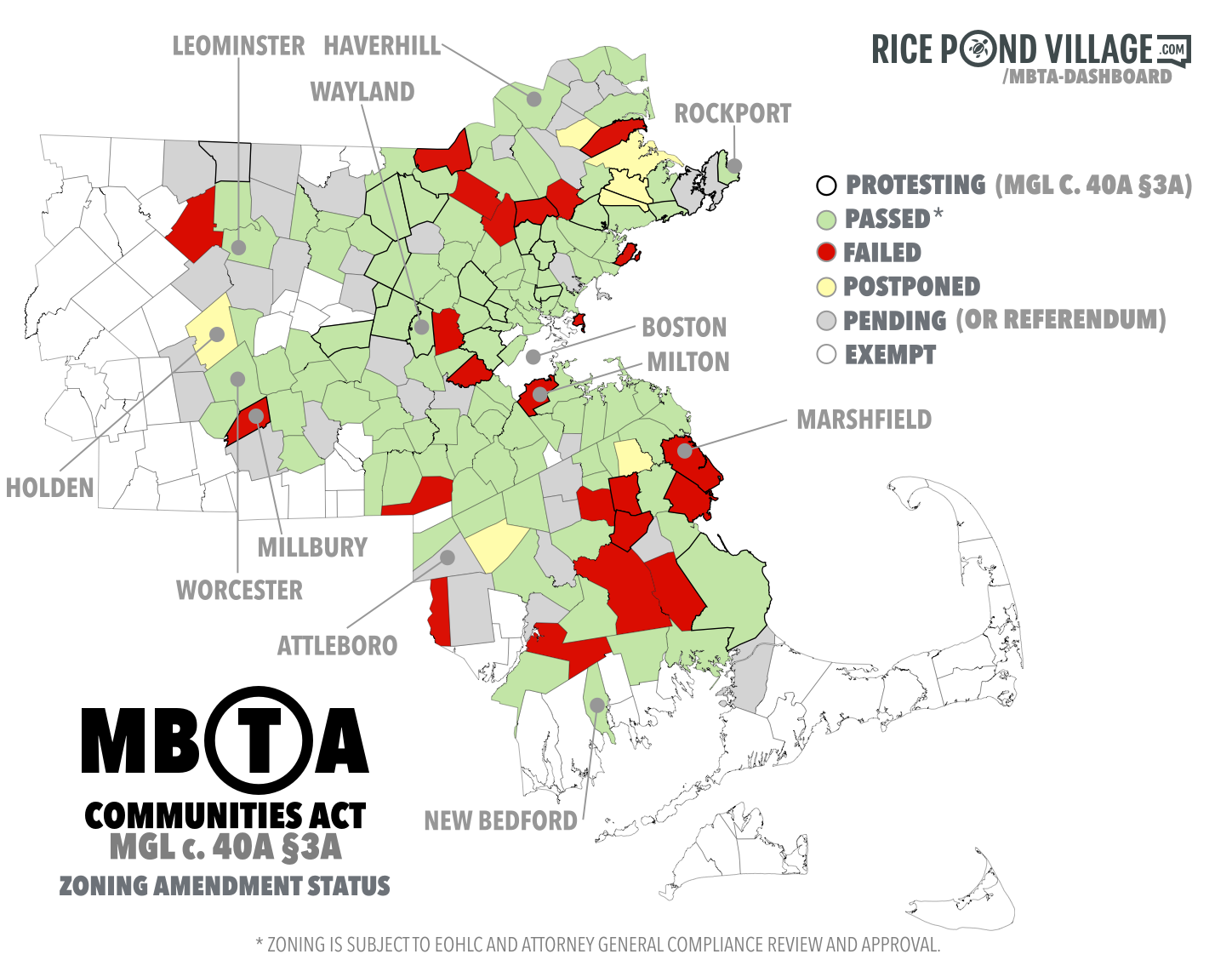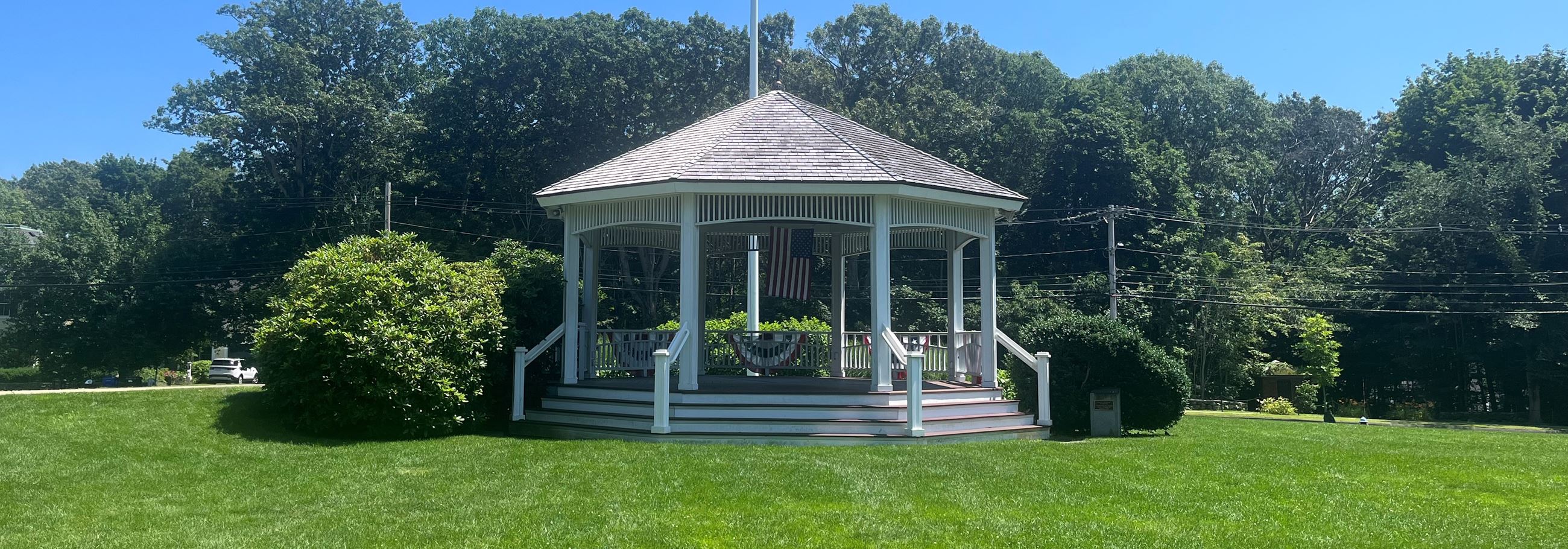Zoning Amendment Status (3/12/2025)

 Milton
Neighbors for
Responsible
Zoning
Milton
Neighbors for
Responsible
Zoning


The "MBTA Communities Act" was signed into law in 2020.
This law enables the ELHOC (Executive Office of Housing and Livable Communities) to write
guidelines that each of the
177 communities serviced by the MBTA must meet. EOHLC guidelines require Milton to zone as of
right 2,461 multi-family units in Milton, 50% within a one half mile radius of the four trolley
stops and 50% elsewhere in Milton. Milton has until December 31, 2023 to provide a compliance plan
that adheres to the guidelines.
At a special Milton town meeting on December 11th, 2023 town meeting members voted to adopt a zoning article
with the most comprehensive zoning changes in nearly 100 years. Subsequently a successful and historic signature
drive collecting nearly 3,000 signatures forced a town wide referendum to allow all the voters in Milton an
opportuinity to help decide on this zoning article. On February 14th, 2024 the residents of Milton
voted overwhelmingly by 54% to reject the zoning article.
Massachusetts Attorney General Andrea Campbell filed a lawsuit on February 27th, 2024 against the town of Milton
for non compliance with the MBTA Communities Act. Supreme Court Justice Serge George on March 18th, 2024 sent the Attorney General’s
case against the town to the full State Supreme
Judicial Court for review.
The Town of Milton's litigator, Kevin Martin of Goodwin Proctor LLP, submitted his brief
to the Supreme Judicial Court (SJC) on August 19th, 2024. The brief asserts the SJC should declare the MBTA Community Act unconstitutional under Article 30.
Article 30 of the Massachusetts Constitution ensures that the branches of government, legislative, executive and judicial remain separate
and do not overstep their powers. This separation aims to maintain a system governed by laws rather than by individuals.
The State Supreme Judicial Court heard oral arguments on October 7th, 2024. (text version)
The SJC released their ruling on January 8. 2025 and unanimously ruled that the state violated the Administrative Procedure Act and therefore the guidelines are unenforceable. A new promulgation process is required that includes public hearings, fiscal assessments and a small business impact analysis.
The Executive Office of Housing and Livable Communities filed emergency regulations on January 14, 2025 with the Secretary of the Commonwealth to support ongoing implementation of the MBTA Communities Law.
MA State Auditor Diana DiZiglio determined the MBTA Communities Act is an “unfunded mandate" which would require the Commonwealth to reimburse each municipality for implementation expenses incurred under the MBTA Communities Act. DiZoglio’s office made the pronouncement in a Febraury 21, 2025 letter to local officials in Wrentham.
On June 17, 2025 Milton Town Meeting voters approved a zoning plan that will keep the town into compliance with the MBTA Communities law as a rapid transit community.
A group of 16 Milton residents filed a lawsuit in Norfolk Superior Court asking the court to drop
Milton’s status as a “rapid transit community” under the MBTA Communities Act and instead consider the
town an “adjacent community” under the law. The plaintiffs did not convince the court that the state’s designation of the town as a
“rapid transit community” was unreasonable,
A special counsel appointed by the select board had prepared a brief asking for a declaratory judgment that the town can choose to be an adjacent community, which requires a 10% plan.
He advised the town to send a letter accompanying their submittal of the 25% action plan reserving the right to change the zoning for a 10% plan should the town win the case.
On June 26, 2025, the town, particularly Benjamin Zoll, the chair of the Select Board, refused to do so.